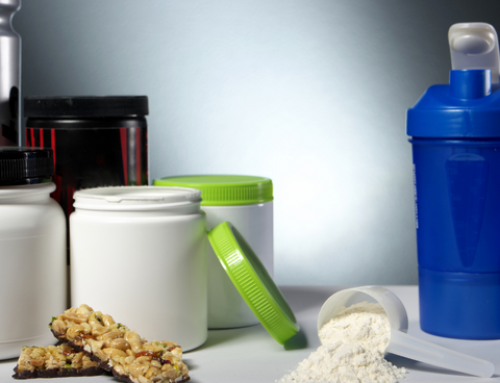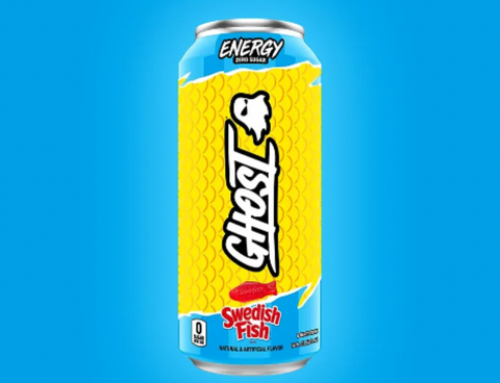5 Ingredients In Pre-Workout Supplements That Don’t Work
![]()
Pre-workout supplements promise explosive energy, animalistic intensity (yes, you read that right) and extreme pumps. But the sad truth is, most contain ingredients that simply don’t work—or not enough of an ingredient to provide any benefit. This makes them nothing but pixie dust and caffeine. It’s a lot cheaper to drink a cup of coffee before your workout.
Here are five ingredients you should be wary of in pre-workout supplements, either because they don’t work or are underdosed:
1. L-Arginine
L-arginine is an amino acid important for blood flow and the production of nitric oxide. Supplement companies like to attribute arginine to sleeve-stretching muscle pumps and roadmap vasodilation. But not only does arginine do little for blood flow in otherwise healthy individuals, several studies show no performance benefits whatsoever.
RELATED: 4 Muscle-Building Supplements That Don’t Work
2. L-Citrulline
This amino acid is actually turned into l-arginine. Unlike l-arginine supplements, citrulline may have performance benefits. Citrulline may increase energy production efficiency and decrease rated-perceived exertion—a scale that measures the intensity of exercise. However, supplement companies often underdose this ingredient to cut costs. An effective dose is between six and eight grams.
3. Glutamine
Glutamine is found in many pre-workout supplements and is sold by itself. It’s generally touted as a muscle builder, but there is a lack of evidence to support this claim in otherwise healthy people. Supplement companies also claim that supplementing with gluatmine helps with muscle recovery and reduces muscle soreness. But, again, little to no evidence supports these claims.
RELATED: The 5 Essential Sports Supplements
4. ATP
Adenosine-5′-Triphosphate Disodium is another common pre-workout additive, touted to improve blood flow and training performance. ATP is the primary source of energy for the cells, so it would make sense that supplementing with ATP would be beneficial for improving exercise performance. But the majority of the research shows no benefit, even with doses larger than what are typically used in popular pre-workout supplements.
5. Taurine
Taurine is marketed to increase focus and therefore improve workout performance. However, there is not enough research—let alone evidence—to suggest it improves performance.
If you buy a product that contains one of these ingredients, it won’t necessarily cause a problem. However, if a product contains one or more of them, it would be inadvisable to invest in it. When it comes to supplemetation, simpler is typically safer and more cost-effective.
RELATED: Sports Supplements: What’s Safe, Effective and Legal?
RECOMMENDED FOR YOU
5 Ingredients In Pre-Workout Supplements That Don’t Work
![]()
Pre-workout supplements promise explosive energy, animalistic intensity (yes, you read that right) and extreme pumps. But the sad truth is, most contain ingredients that simply don’t work—or not enough of an ingredient to provide any benefit. This makes them nothing but pixie dust and caffeine. It’s a lot cheaper to drink a cup of coffee before your workout.
Here are five ingredients you should be wary of in pre-workout supplements, either because they don’t work or are underdosed:
1. L-Arginine
L-arginine is an amino acid important for blood flow and the production of nitric oxide. Supplement companies like to attribute arginine to sleeve-stretching muscle pumps and roadmap vasodilation. But not only does arginine do little for blood flow in otherwise healthy individuals, several studies show no performance benefits whatsoever.
RELATED: 4 Muscle-Building Supplements That Don’t Work
2. L-Citrulline
This amino acid is actually turned into l-arginine. Unlike l-arginine supplements, citrulline may have performance benefits. Citrulline may increase energy production efficiency and decrease rated-perceived exertion—a scale that measures the intensity of exercise. However, supplement companies often underdose this ingredient to cut costs. An effective dose is between six and eight grams.
3. Glutamine
Glutamine is found in many pre-workout supplements and is sold by itself. It’s generally touted as a muscle builder, but there is a lack of evidence to support this claim in otherwise healthy people. Supplement companies also claim that supplementing with gluatmine helps with muscle recovery and reduces muscle soreness. But, again, little to no evidence supports these claims.
RELATED: The 5 Essential Sports Supplements
4. ATP
Adenosine-5′-Triphosphate Disodium is another common pre-workout additive, touted to improve blood flow and training performance. ATP is the primary source of energy for the cells, so it would make sense that supplementing with ATP would be beneficial for improving exercise performance. But the majority of the research shows no benefit, even with doses larger than what are typically used in popular pre-workout supplements.
5. Taurine
Taurine is marketed to increase focus and therefore improve workout performance. However, there is not enough research—let alone evidence—to suggest it improves performance.
If you buy a product that contains one of these ingredients, it won’t necessarily cause a problem. However, if a product contains one or more of them, it would be inadvisable to invest in it. When it comes to supplemetation, simpler is typically safer and more cost-effective.
RELATED: Sports Supplements: What’s Safe, Effective and Legal?
[cf]skyword_tracking_tag[/cf]









